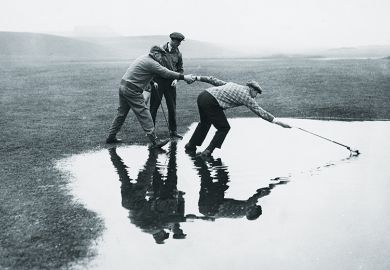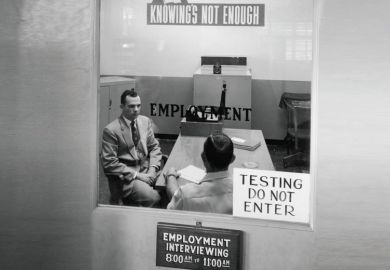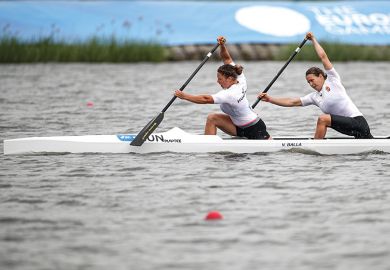Academic year 2019-20 is in full swing. As winter unfolds, deadlines begin to emerge for conferences that will take place in spring and summer of 2020.
In my own field, management and organisation studies, conferences can consist of gatherings that range from a few hundred to many thousands of researchers.
As the challenge of getting to net zero carbon emissions surfaces in many walks of life, it is striking that the basic premise of the academic conference has remained largely unchanged. Why?
The twin benefits of getting feedback on your own work and hearing first-hand what the leading figures in your discipline are up to are still the main reasons for attending. Granted, some colleagues see it as a form of subsidised travel to sunnier climes but most understand that building their academic network happens faster and most effectively by attending a conference.
I have found that attending successive meetings of the same conference over a few years is by far the most effective way of developing then maintaining your network. As you present your own work and hear others do the same, you gradually figure out who you should be working with and identify fruitful areas for collaboration.
But the challenge facing conferences is the same challenge that faces all of us, in every part of our working and domestic lives. Is it really defensible to have thousands of academics jetting to one location for three or four days just to build their network?
My own institution has several campus locations and we are beginning to discuss the challenge of our carbon footprint. Given the prominence of net zero challenges, how might the research community rethink the conference model?
I must confess that I find it difficult to imagine a different way of mimicking the conference experience, but that’s probably a combination of age and long exposure to the current model. What is striking is that recently qualified researchers have grown up in a different, immersive and digital environment. If much of your social life has been digitally mediated then your expectations may be radically different.
Perhaps conferences will paradoxically become more diffuse and more intense. More diffuse in the sense that your opportunity to build your network won’t be restricted to a few days in a particular place at a particular point in the year. More intense in the sense that once you know who you want to work with, you can do so more proactively, more quickly and more effectively.
Even if you’re not a digital native, it is hard to miss the fact that digital communities exist to satisfy the most bizarre and obscure niches. For those who are digital natives this could become as true of their academic lives as it is of their domestic lives.
What does this say for those of us too long in the tooth to imagine a new way of conferencing? As a minimum, it should challenge each and every one of us to think about the consequences of our travel choices.
We are very familiar with having to agree the funds required to allow us to attend a conference. What if we were issued with a carbon budget instead of, or perhaps as well as, a monetary one? It would probably focus our minds on what we are actually getting out of the conferences that we do choose to attend.
For those organising major conferences it would be interesting to see greater transparency on the environmental impact of the events being hosted. There is an inexorable pressure to demonstrate that our research is world-leading for bragging rights and often for career progression.
Maybe reviewers of the future will find themselves having to balance big ideas against big environmental impacts. To date, I’ve had papers accepted, and rejected, by a range of conferences over the years. I’ve never yet been told, “we liked your paper but you live too far away”.
Robert MacIntosh is head of Heriot-Watt University’s School of Social Sciences, where he is professor of strategic management. He blogs about higher education career and PhD issues at www.thePhDBlog.com.
Register to continue
Why register?
- Registration is free and only takes a moment
- Once registered, you can read 3 articles a month
- Sign up for our newsletter
Subscribe
Or subscribe for unlimited access to:
- Unlimited access to news, views, insights & reviews
- Digital editions
- Digital access to THE’s university and college rankings analysis
Already registered or a current subscriber?




